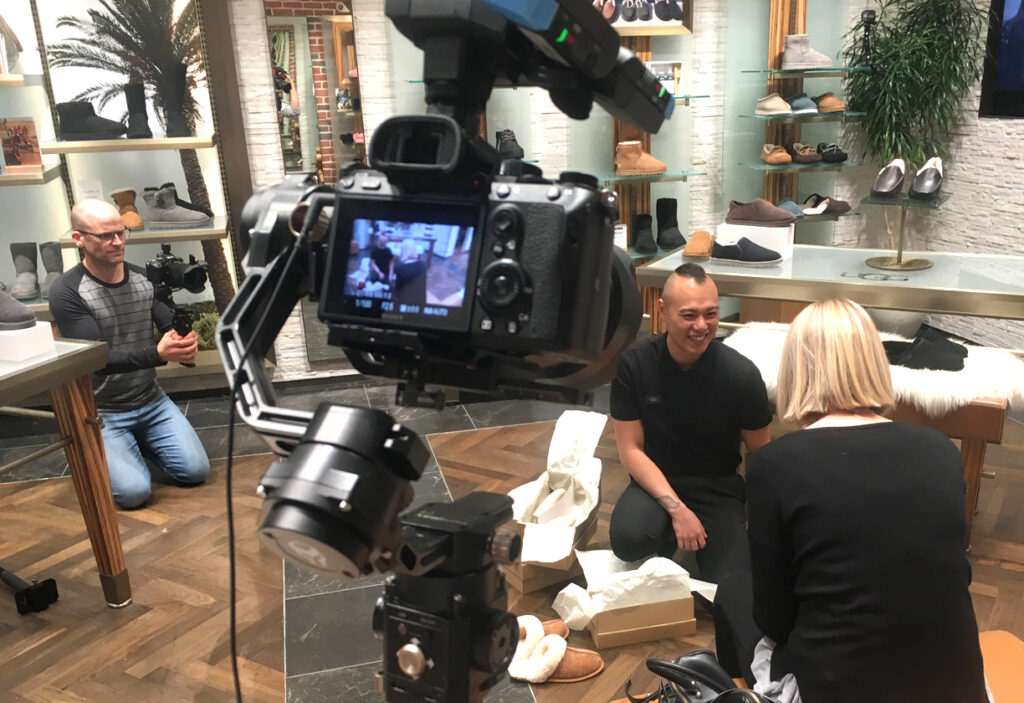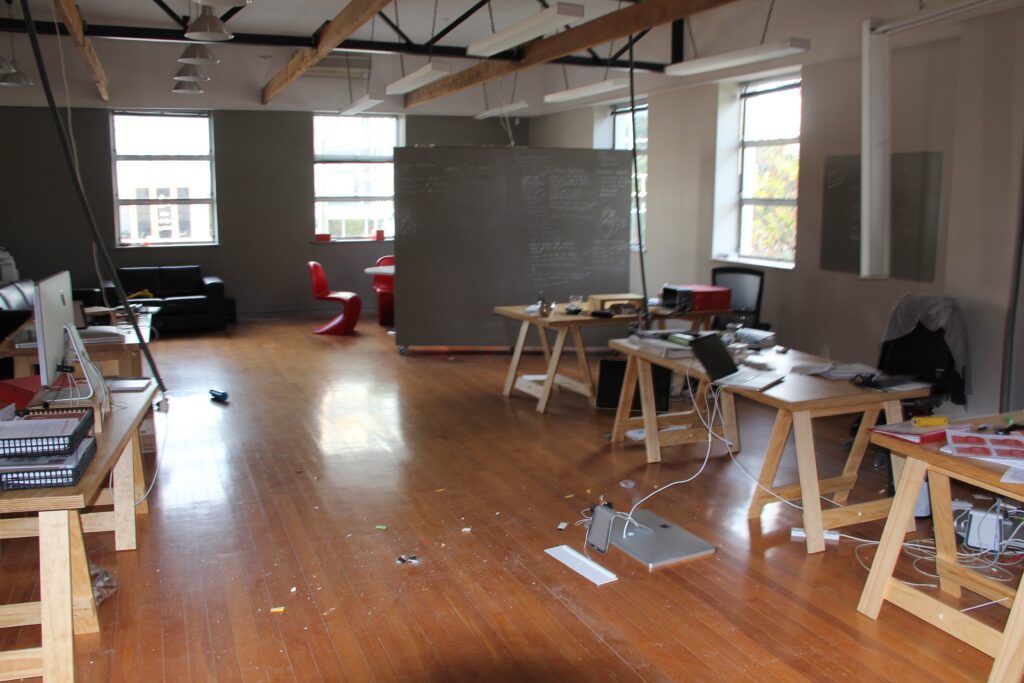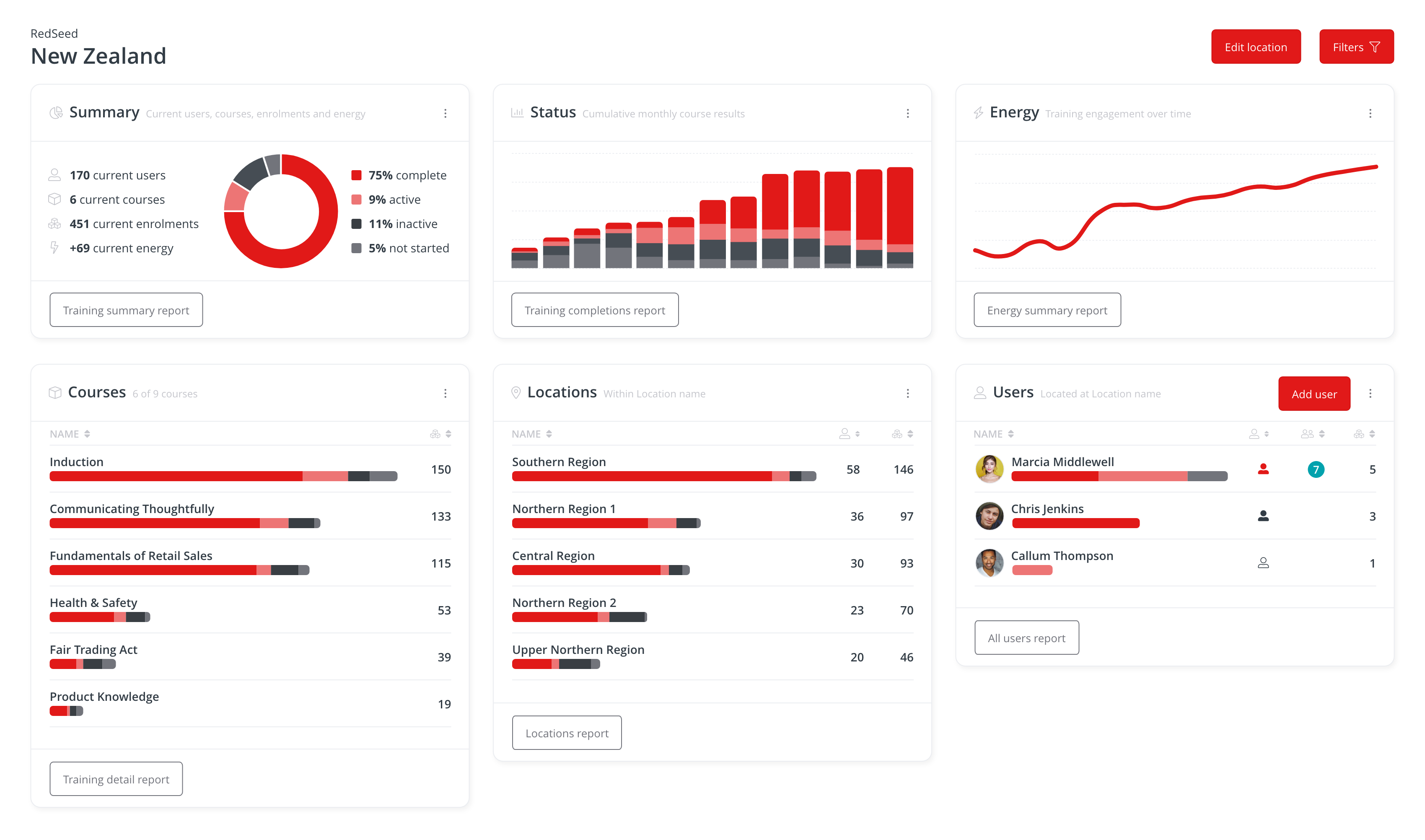
RedSeed, the online retail training provider, has over 100,000 active trainees across New Zealand and Australia. With a new online product in the works, the company is setting its sights on the USA. Vincent Heeringa spoke to CEO and co-founder Anya Anderson.
When you ask for a definition of success, most CEOs will rattle off a revenue target, a few customers, or maybe an acronym like EBITDA or IRR. Anya Anderson, co-founder and CEO of RedSeed, responds differently. “We do have an ‘obsession’ metric, which is kind of like a north star: it’s the percentage of trainees (RedSeed users) who are coached.”
Okay, um, what?
The proportion of coaching, she says, represents a depth of engagement with RedSeed and the ‘stickiness’ of RedSeed’s products. “When we’ve asked, what is the one thing we can be best in the world at, it’s this. It’s a metric that works across our whole organisation and that everyone can impact. We asked our team to define their goal at a recent strategy day. They all independently settled on this. The whole team is asking: how do we move the needle on that? “If you can shift it, everything else will kind of fall into place.”
The world has a lot of training providers. Anya believes that coaching sets RedSeed apart. The Christchurch-based company builds online tools and content, helping large retailers such as Rip Curl, Foodstuffs and Kathmandu to assemble customised training programmes, using their own staff as coaches. RedSeed’s two-way rating system allows staff to rate their coach and coaches to rate the staff, increasing compliance and identifying star employees. Anya likens this approach to Uber or Airbnb.
“You have this kind of social pressure that creates the right outcome without using an overt stick or carrot.”
Anya Anderson
Equipping retailers to build their own coaching capability is at the heart of a refreshed product being rolled out in Australia first and then the USA.
Overseas expansion has been a while in the making. Unlike some rapid SaaS success stories like Whip Around and Couchdrop, RedSeed’s expansion has been steady. Punakaiki Fund first invested in 2015, eventually buying out Anya’s co-founders to assume 48.5% ownership in 2020. Lance says the fund invested because of RedSeed’s proven impact on retailers’ bottom lines. “RedSeed doesn’t just help people learn, it also changes behaviour and drives bottom line results for retailers. When I first met Anya at an NZTE event, she was able to show examples where RedSeed drove same-store sales more than 10% higher with no other changes. An amazing achievement that has a real impact on their clients.”
At the core of RedSeed’s products is Anya’s belief in people. “I love the essence of what RedSeed is all about. I mean, it sounds cheesy, but we talk about unlocking the potential of individuals and organisations.” Her skills in people and performance were learned doing the hard yakka of New Zealand’s main street retail. Graduating with degrees in physical education and economics, she got a job with Hallensteins Glassons and quickly ended up as “the group HR department, that is, it was just me.”
Anya needed systems to cope. “There was no way a single person could get across the stores in Australia and New Zealand. And we had HBK kids at that point as well. So, I had to track every second. I learned how to manage my time!”
She left after a few years but was invited back to consult on training. “We kind of reinvented their training because there were flaws in what they’d been doing. They’d rolled out a US-based product and there were aspects that were driving some negative behaviour. It was my first foray into that kind of retail training.”
Anya combined her insights into sales with three other partners who had an interactive creative agency, including video production. The first product was delivered on CD-ROM and Hallensteins paid $50,000 for seven years’ unrestricted use. “That now seems nuts, but it was amazing at the time because it was such a great company to have as our first reference client and we were effectively paid to develop our IP.”
It was 2008, the year of the GFC, but the sales machine started to crank. Vodafone came next, paying above the odds to exclude all other telcos. They added Cash Converters and DTR, then landed a biggie, Foodstuffs. “They gave us a hundred thousand, which we thought was like, you know, the world’s largest deal. But it was a perpetual licence which we’re still delivering on now [laughing]. We were prepared to do anything as early-stage entrepreneurs.”
The core product lasted seven years before needing a major overhaul.
“We used to joke that what we all wanted was to make a product that sells while we slept, so we built scalability from the start. It was the start of the Internet video, and we could see the potential if we could get online training to be successful.”
Anya Anderson
In 2010 the Canterbury earthquake forced the business from its offices in the Cashel (City) Mall. “Nobody was injured which was amazing, but it was pretty horrific because we were right in the thick of it.” The team was able to retrieve laptops and thank goodness they had invested in offsite storage. But the office was gone. For the next two years, the six or so staff worked above the Anderson family garage. “Everybody knew our house quite well, where the toilet paper was kept, that kind of thing. But it was a good test of culture. We came out stronger.”
In 2013 the business moved into the Epic tech cluster and opened a Sydney office. With the arrival of Punakaiki Fund, the company could progressively buy out its founders.
“That was satisfying. To build a business and then see your partners receive a reward.”


Looking back on those formative years, Anya says she wishes she had trusted her gut more. The company experimented with forays into the health sector and other diversions. “We had a lot of advisors who kind of didn’t understand our products that well. In tech especially, people are looking for the pot of gold at the end of the rainbow, right? It took me quite a long time to figure out that I know this business better than anyone. And we are at our best when we focus on retail.”
Refocusing on retail has had multiple benefits for RedSeed. The impact of Covid was far less devastating than initially thought, with some of RedSeed’s clients, including grocery, furniture, and home improvements, flourishing during the lockdowns. It also helped shape the growth strategy.
In 2021, RedSeed acquired KiwiHost, a training provider with a large and complimentary customer base, and no online modules. The synergies have allowed RedSeed to incorporate KiwiHost customers and content into their SaaS platform. RedSeed now has 52% of all New Zealand target customers on its platform. 
“Our primary focus is growing our footprint in Australia. We have pretty clear criteria: 500 to 5,000 staff. Currently, we have only 2% of this market.”
The USA also beckons. Weber, the BBQ company, is already a client, as are VF group which also owns Icebreaker, and the PVH group, owner of Tommy Hilfiger and Calvin Klein. “We’ve been talking to global group heads about pulling our product across the global groups. But you know, this is a slow-burn business.”
To be match fit, RedSeed is launching a new ‘course authoring’ tool that allows clients to assemble their own training programme using drag-and-drop tools and content, all on the RedSeed platform. Previously, users needing to author courses required a third-party tool but they can now create great courses, with coaching, right inside RedSeed. Anya says the new platform fills out the RedSeed offering, which now includes over 200 courses, a content library, a learning management system, coaching tools and now the authoring tool.
So, is she finally making money while she sleeps? “Ha-ha, well, not quite. I still have to work, but we’re definitely on that path.”